
A live recording at 28 rue Dunois, in Paris, France in 1984 from the trio of Daunik Lazro on alto sax, Joelle Leandre on double bass and voice, and George Lewis on trombone, a trans-Atlantic enounter of creative inventiveness and innovative vision, a great document of three persistent masters captured early in their incredible careers.
In Stock
Quantity in Basket: None
Log In to use our Wish List
Shipping Weight: 3.00 units
EU & UK Customers:
Discogs.com can handle your VAT payments
So please order through Discogs
Sample The Album:
Daunik Lazro-alto saxophone
Joelle Leandre-doublebass, voice
George Lewis-trombone
Click an artist name above to see in-stock items for that artist.
UPC: 3426300099648
Label: Fou Records
Catalog ID: FR-CD 18
Squidco Product Code: 23424
Format: CD
Condition: New
Released: 2016
Country: France
Packaging: Cardboard Gatefold
Concert recorded at 28 rue Dunois, in Paris, France, on January 8th, 1984, by Jean-Marc Foussat.
"Amazing to think that 30 years of Joëlle Léandre's many collaborations with Daunik Lazro and George Lewis began with a recording we've never heard in full before now. As I've been soaking in all the writing this week, I revisited a couple of seminal albums also recorded in the 1980s, particularly the Intakt releases The Storming of the Winter Palace (the epic quintet featuring Léandre, Lewis, Maggie Nicols, Irène Schweizer, and Günter Sommer) and Paris Quartet (Léandre's album with Lazro, Schweizer, and Yves Robert). A portion of this trio performance appeared on Lazro's HatHut set, Sweet Zee, but if I'm not mistaken, this is the first release of the complete session. Thinking about how this is likely the first recorded meeting of these three, the clarity of the recording would be enough to recommend it, for its historical value. But the real prizes here are the vibrancy and ingenuity of three great improvisers in collaboration.
The opening 30 seconds of "Enface 1" contain a scattering of percussive noises (think Art Ensemble of Chicago-style little instruments), Léandre's voice, and the briefest tease of Lazro's sax. A minute later, the trio is fully awoken. Lazro and Léandre have long been collaborating, and the genesis of their partnership illuminates how well matched they've been since the beginning. All three musicians boast tremendous talent and commitment to the moment, but there's also sly humor and a passionate drive to urge listeners to out of their traditionally passive role. "Enfance 4" is a wonderful examples of this, with Léandre's arco solo suddenly interrupted by Lewis and Lazro's riffs and squaks.
"Enface 5" is something of preview of the past 30 years in retrospect. Early on, Lazro takes a lyrical solo, which Léandre quickly picks up on bass. The two continue moving forward, somewhat hesitantly, before ceding the floor to Lewis for an extended solo. The three come together in a swirling passage of singing, bass, trombone, and sax, which contrasts staccato passages with brassy outbursts. Hearing it all hang together in synchrony, I was somewhat on edge, waiting to hear how long the passage would sustain itself.
With most of the tracks clocking in at sub-4 minutes, the 20-minute "Enface 5" and 12-minute "Enface 6" form the centerpiece of the album. Toward the middle of "Enface 6" is a Lazro/Lewis duet, with the two weaving their lines together into a dense run. Gradually, Léandre joins, then quickly takes centerstage for a solo that sets the path forward for the piece's conclusion. The final track, "Enface 10," plays like a strident plea that could be a call for peace, a call to action, or a call simply echoing out into space, perhaps never to be answered."-Lee Rice Epstein, The Free Jazz Collective
Get additional information at The Free Jazz Collective
Artist Biographies
• Show Bio for Daunik Lazro "The French saxophonist Daunik Lazro combines a tart, piercing tone with a quick mind and a flexible philosophy of music-making. His professional start was in bassist Saheb Sarbib's orchestra, a relationship he maintained through most of the '70s, which included three recordings. His first steps playing his own music involved a radical resizing of the cast on-stage, going from orchestra playing to solo saxophone concerts and duets. In the '80s, he busily played with many on the European improvised music scene, including bassist Jean Jacques Avenel, cellist Tristan Honsinger, violinist Carlos Zingaro, drummer Christian Rollet, and saxophonist Evan Parker, among others. In the mid-'80s, Lazro expanded his partnerships to include dance and theater projects, including work with the Company of the Chance. He formed a particularly fine trio in 1987 with fellow saxophonist Michel Doneda and the brilliant ppercussionistLê Quan Ninh, playing at many of the major European festivals and also touring in Canada. Duets with the American free improviser Joe McPhee are a 1991 discographical highlight, during a period when Lazro also began playing viola. In 1993, he started his own orchestra as well as a quartet called Outlaws in Jazz with Jac Berrocal, Didier Levallet, and Dennis Charles. In 1995, he toured Europe in a triple-threat combination with both McPhee and Parker, and the former artist also joined him in a quartet the following year with the superb British contrabassist Paul Rogers. In the late '90s, he continued involvement with a series of orchestra projects, often as a guest soloist." ^ Hide Bio for Daunik Lazro • Show Bio for Joelle Leandre "Joëlle Léandre is a famous French Bassist and is known for her collaborations with other musicians in the field of improvised music. Born in France on September 12th, 1951, she made her music debut in 1984 with Les Douze Sons. Her childhood was filled with music, and she was particularly interested in the piano during her early years. In her later years, she developed an interest in double bass, which won her many honors and scholarships during her education. Her double bass teacher Pierre Delescluse encouraged her to apply to the Conservatoire National Superieur de Musique de Paris, where she was formally trained and noticed for her talent in the bass. Her outstanding musicianship took her to the United States and to the Centre for Creative and Performing Arts in Buffalo through a scholarship. In the United States, she expanded her network and met some of the best composers, such as John Cage, Giacinto Scelsi, and Morton Feldman. Among them, John Cage greatly influenced her music and compositions. Her time in the United States also enabled her to experience downtown New York music, which was another significant influence that led to her continued involvement in the field of improvised music. Some of her notable collaborations in the field of contemporary music are with Pierre Boulez, Merce Cunningham, John Cage, and Giacinto Scelsi. Among them, John Cage and Giacinto Scelsi were the biggest influences in her life and music. In an interview, Joëlle Léandre said that John Cage was her spiritual father and changed her perception of sound and music. In another interview, she tells how Giacinto Scelsi allowed her to discover her own music and how his music transported her into a new world of improved consciousness. In the field of jazz music, she collaborated with Derek Bailey, William Parker, and Sebi Tramontana. Her music was owned and distributed by different music labels, including FMP, Leo, RougueArt, and Red Toucan. Some memorable songs and albums she released throughout the years include Instant Replay, Les Douze sons, Trios, Sweet Zee, Frerebet, Joelle et Tetsu, Philippe Fenelon, Voyages, etc. Some of the recent releases include Can You Hear Me and Unleashed. She has also performed live at the Tampere Jazz Festival twice, where popular international artists compete with each other. Joëlle Léandre is also the member of European Women's Improvising Group (EWIG). The group evolved from the Feminist Improvising Group, and Joëlle Léandre joined the group in 1983. In the early 1900s, she co-founded Les Diaboliques with Irene Schweizer and Maggie Nicols, who were her long-time musician friends. Besides that, she also teaches several classes in prestigious universities about contemporary and improvised music. She has lived in France, Germany, and U.S during her lifetime, teaching at academic institutions in the religions and playing concerts. In 2002, she was invited to Canada as a visiting professor for music and composition." ^ Hide Bio for Joelle Leandre • Show Bio for George Lewis "George E. Lewis is the Edwin H. Case Professor of American Music at Columbia University. A 2015 Fellow of the American Academy of Arts and Sciences and a Corresponding Fellow of the British Academy, Lewis has received a MacArthur Fellowship (2002), a Guggenheim Fellowship (2015), a United States Artists Walker Fellowship (2011), an Alpert Award in the Arts (1999), and fellowships from the National Endowment for the Arts. In 2015, Lewis received the degree of Doctor of Music (DMus, honoris causa) from the University of Edinburgh. A member of the Association for the Advancement of Creative Musicians (AACM) since 1971, Lewis's work in electronic and computer music, computer-based multimedia installations, and notated and improvisative forms is documented on more than 140 recordings. His work has been presented by the BBC Scottish Symphony Orchestra, London Philharmonia Orchestra, Radio-Sinfonieorchester Stuttgart, Boston Modern Orchestra Project, Talea Ensemble, Dinosaur Annex, Ensemble Pamplemousse, Wet Ink, Ensemble Erik Satie, Eco Ensemble, and others, with commissions from American Composers Orchestra, International Contemporary Ensemble, Harvestworks, Ensemble Either/Or, Orkestra Futura, Turning Point Ensemble, San Francisco Contemporary Music Players, 2010 Vancouver Cultural Olympiad, IRCAM, Glasgow Improvisers Orchestra, and others. Lewis has served as Ernest Bloch Visiting Professor of Music, University of California, Berkeley; Paul Fromm Composer in Residence, American Academy in Rome; Resident Scholar, Center for Disciplinary Innovation, University of Chicago; and CAC Fitt Artist In Residence, Brown University. Lewis received the 2012 SEAMUS Award from the Society for Electro-Acoustic Music in the United States, and his book, A Power Stronger Than Itself: The AACM and American Experimental Music (University of Chicago Press, 2008) received the American Book Award and the American Musicological Society's Music in American Culture Award. Lewis is co-editor of the two-volume Oxford Handbook of Critical Improvisation Studies (2016), and his opera Afterword, commissioned by the Gray Center for Arts and Inquiry at the University of Chicago, premiered at the Museum of Contemporary Art Chicago in October 2015 and has been performed in the United States, United Kingdom, and the Czech Republic. Professor Lewis came to Columbia in 2004, having previously taught at the University of California, San Diego, Mills College, the School of the Art Institute of Chicago, the Koninklijke Conservatorium Den Haag, and Simon Fraser University's Contemporary Arts Summer Institute. Lewis studied composition with Muhal Richard Abrams at the AACM School of Music, and trombone with Dean Hey." ^ Hide Bio for George Lewis
12/17/2025
Have a better biography or biography source? Please Contact Us so that we can update this biography.
12/17/2025
Have a better biography or biography source? Please Contact Us so that we can update this biography.
12/17/2025
Have a better biography or biography source? Please Contact Us so that we can update this biography.
Track Listing:
1. Enfance 1 2:12
2. Enfance 2 1:34
3. Enfance 3 2:15
4. Enfance 4 3:59
5. Enfance 5 19:36
6. Enfance 6 11:48
7. Enfance 7 1:33
8. Enfance 8 8:13
9. Enfance 9 1:04
10. Enfance 10 4:52
Improvised Music
Jazz
Free Improvisation
European Improvisation and Experimental Forms
Chicago Jazz & Improvisation
Trio Recordings
Search for other titles on the label:
Fou Records.


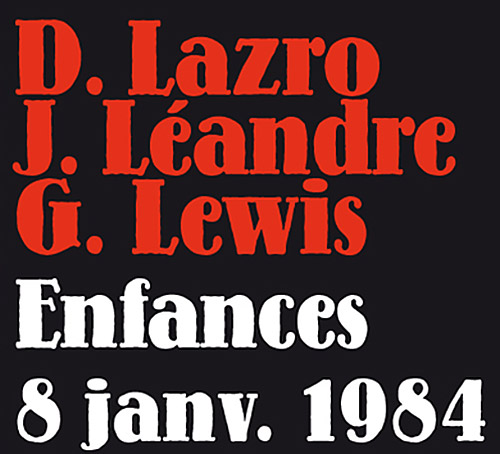
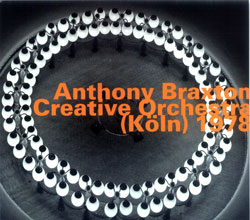



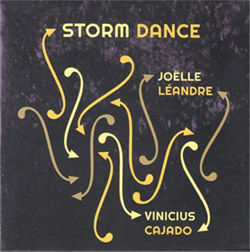
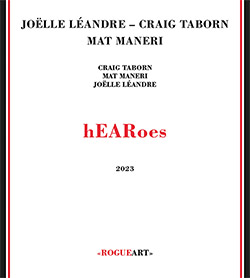
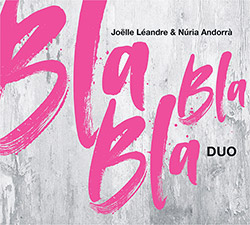




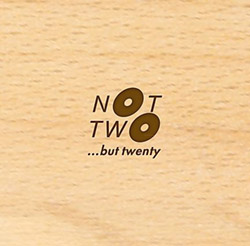
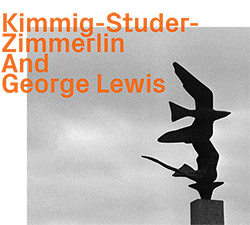
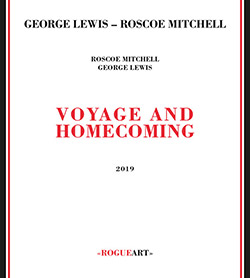



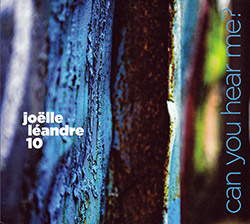

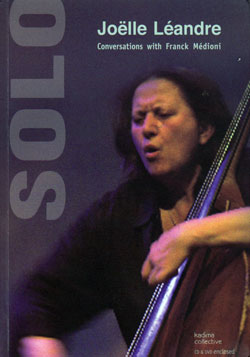
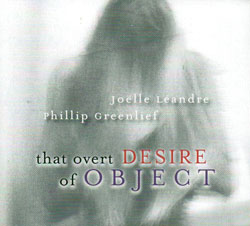
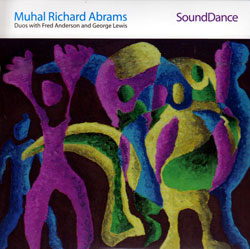
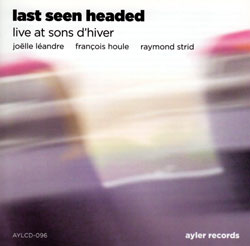
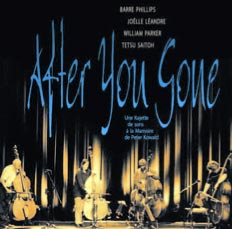
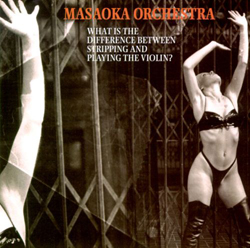

![HobbyHouse (Mia Dyberg / Axel Filip): HobbyHouse [CD + DOWNLOAD]](https://www.teuthida.com/productImages/misc4/36944.jpg)
![Mines, Kelsey / Erin Rogers: Scratching At The Surface [CD + DOWNLOAD]](https://www.teuthida.com/productImages/misc4/36945.jpg)
![Nebbia, Camila (feat/ Marilyn Crispell / Lesley Mok): A Reflection Distorts Over Water [CD + DOWNLOAD]](https://www.teuthida.com/productImages/misc4/36946.jpg)
![Vanheerentals, Adia: Taking Place [CD + DOWNLOAD]](https://www.teuthida.com/productImages/misc4/36947.jpg)
![Mines, Kelsey / Vinny Golia: Collusion and Collaboration [CD + DOWNLOAD]](https://www.teuthida.com/productImages/misc4/36948.jpg)
![Parkins, Zeena: Lament For The Maker [CD + DOWNLOAD]](https://www.teuthida.com/productImages/misc4/36949.jpg)
![Evans, Peter / Mike Pride : A Window, Basically [CD + DOWNLOAD]](https://www.teuthida.com/productImages/misc4/36950.jpg)


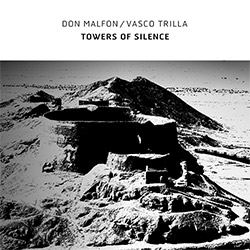
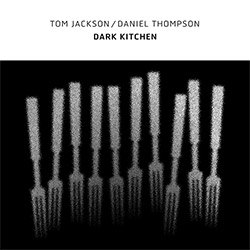
![Frey, Jurg : Composer, Alone [3 CDs]](https://www.teuthida.com/productImages/misc4/36927.jpg)
![Belorukov, Ilia / Alex Riva: Wrestling For Futility [CASSETTE w/DOWNLOAD]](https://www.teuthida.com/productImages/misc4/36994.jpg)
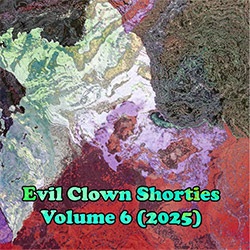
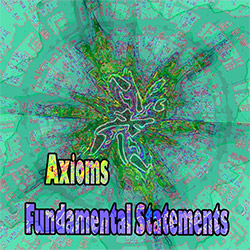










![Agnel, Sophie: Learning [VINYL]](https://www.teuthida.com/productImages/misc4/36841.jpg)

![Monaco, Amanda (w/ Michael Attias / Sean Conly / Satoshi Takeishi) : Deathblow [VINYL+ DOWNLOAD]](https://www.teuthida.com/productImages/misc4/36956.jpg)
![Frey, Jurg with ensemble]h[iatus: Je Laisse A La Nuit Son Poids D](https://www.teuthida.com/productImages/misc4/36988.jpg)
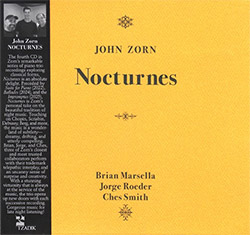
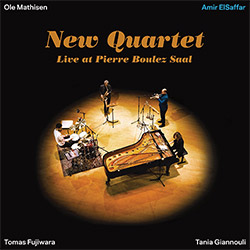
![ElSaffar, Amir / New Quartet : Live at Pierre Boulez Saal [VINYL]](https://www.teuthida.com/productImages/misc4/36830.jpg)

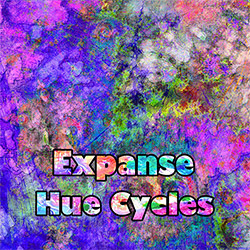
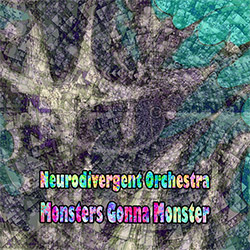
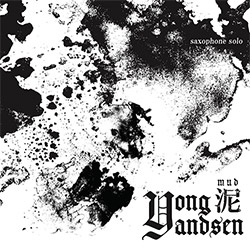

![Musicworks Magazine: #152 Fall 25 [MAGAZINE + CD]](https://www.teuthida.com/productImages/misc4/37004.jpg)
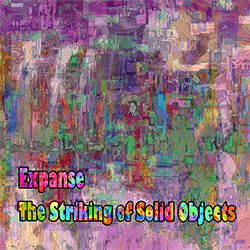




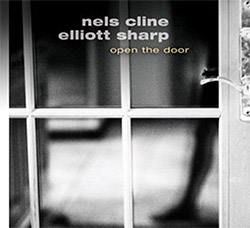
![[ahmed] (Thomas / Grip / Gerbal / Wright): Sama](https://www.teuthida.com/productImages/misc4/36976.jpg)

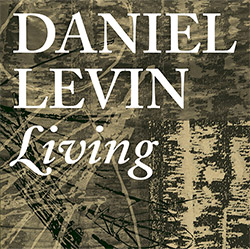
![Cleaver, Gerald / Brandon Lopez / Hprizm: In The Wilderness [COLOR VINYL]](https://www.teuthida.com/productImages/misc4/33060.jpg)
![McPhee, Joe : Defiant Jazz: a Joe McPhee Taster [VINYL]](https://www.teuthida.com/productImages/misc4/36859.jpg)
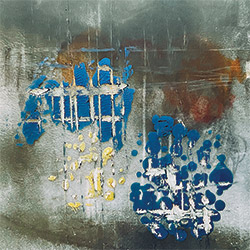
![Mateen, Sabir / Patrick Holmes / Federico Ughi : Survival Situation [LTD VINYL LP + DOWNLOAD]](https://www.teuthida.com/productImages/misc4/29891.jpg)
![Tucker, Dave / Pat Thomas / Thurston Moore / Mark Sanders: Educated Guess Vol. 1 [COLORED VINYL]](https://www.teuthida.com/productImages/misc4/30183.jpg)
![Sarian, Michael / Matthew Putman: A Lifeboat (Part I) [COLORED VINYL]](https://www.teuthida.com/productImages/misc4/30426.jpg)

![Genthon, Anouck / Lionel Marchetti: Suite Blanche [2 CDs]](https://www.teuthida.com/productImages/misc4/36642.jpg)
![Toeplitz, Kasper T.: Erosions Programmees [CD + BOOKLET]](https://www.teuthida.com/productImages/misc4/36639.jpg)
![Gate, The : Amost Live [CASSETTE + MAGAZINE]](https://www.teuthida.com/productImages/misc4/36836.jpg)






![A Magic Whistle: The Solar Cell [VINYL]](https://www.teuthida.com/productImages/misc4/36658.jpg)

![McGee, Hal: Columbus Expedition [Cassette w/ Download]](https://www.teuthida.com/productImages/misc4/36650.jpg)


![Jaeger, Kassel: Fernweh [VINYL 2 LPs]](https://www.teuthida.com/productImages/misc4/36541.jpg)





![+DOG+: The Light Of Our Lives [2 CDs]](https://www.teuthida.com/productImages/misc4/36009.jpg)


![Eternities: Rides Again [CASSETTE]](https://www.teuthida.com/productImages/misc4/36247.jpg)

![Lopez, Francisco: Untitled (2021-2022) [2 CDs]](https://www.teuthida.com/productImages/misc4/36438.jpg)





![Pisaro-Liu, Michael: Within (2) / Appearance (2) [2 CDs]](https://www.teuthida.com/productImages/misc4/36831.jpg)










![Musicworks Magazine: #151 Summer 25 [MAGAZINE + CD]](https://www.teuthida.com/productImages/misc4/36559.jpg)

![Brown, Dan / Dan Reynolds: Live At The Grange Hall [unauthorized][CASSETTE]](https://www.teuthida.com/productImages/misc4/36245.jpg)


![Zorn, John: The Song of Songs [CD + CD BOOK]](https://www.teuthida.com/productImages/misc4/36923.jpg)

![Coultrain: Mundus [COLORED VINYL]](https://www.teuthida.com/productImages/misc4/33056.jpg)
![Hprizm: Signs Remixed [COLORED VINYL]](https://www.teuthida.com/productImages/misc4/30635.jpg)
![Halls Of the Machine: All Tribal Dignitaries [CASSETTE w/ DOWNLOAD]](https://www.teuthida.com/productImages/misc4/36134.jpg)



![Koenjihyakkei: Live at Club Goodman [2 CDs]](https://www.teuthida.com/productImages/misc4/36111.jpg)

![Sorry For Laughing (G. Whitlow / M. Bates / Dave-Id / E. Ka-Spel): Rain Flowers [2 CDS]](https://www.teuthida.com/productImages/misc4/35985.jpg)

![Rolando, Tommaso / Andy Moor : Biscotti [CASSETTE w/ DOWNLOADS]](https://www.teuthida.com/productImages/misc4/36106.jpg)


![Electric Bird Noise / Derek Roddy: 8-10-22 [CD EP]](https://www.teuthida.com/productImages/misc4/35970.jpg)








![Elephant9 : Mythical River [VINYL]](https://www.teuthida.com/productImages/misc4/34624.jpg)



![Elephant9 with Terje Rypdal: Catching Fire [VINYL 2 LPs]](https://www.teuthida.com/productImages/misc4/35355.jpg)
![Coley, Byron: Dating Tips for Touring Bands [VINYL]](https://www.teuthida.com/productImages/misc4/17906.jpg)

![Lost Kisses: My Life is Sad & Funny [DVD]](https://www.teuthida.com/productImages/misc4/lostKissesDVD.jpg)